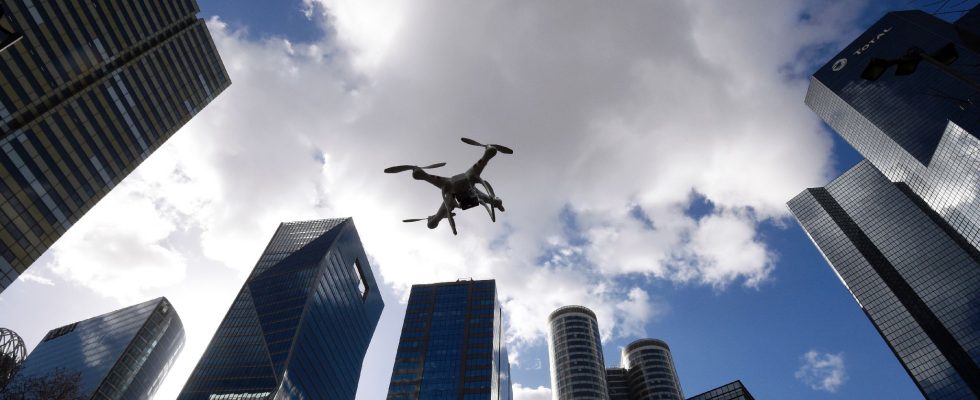Paris, Nantes, Lyon, Bordeaux… For the first time in some cities in France, the May Day mobilization will be monitored by drones. The prefectures evoke the need to better regulate the flow of demonstrators, while 500,000 to 650,000 people are expected according to territorial information. In total, more than 300 actions are planned in France.
But the use of drones is far from unanimous. Appeals have been filed highlighting the defense of fundamental freedoms. In Rouen, the administrative court partially suspended the prefectural judgment, restricting the scope of use of drones. In Lyon, the appeal was dismissed. Decisions concerning Paris and Bordeaux were expected in the morning.
“Protect” and “Secure”
The use of drones is permitted thanks to the law on criminal responsibility and internal security, via an implementing decree dated April 19, 2023. According to this, the police are authorized to collect images to prevent “attacks on the safety of persons and property in particularly exposed places”, or to ensure “the safety of gatherings of people on the public highway or in places open to the public”. The demonstration against the A69 motorway project in the Tarn, on April 22, thus became the first mobilization to be monitored by drone.
Regarding May 1, the authorities warn of the potential presence of 1,000 to 2,000 “at risk” individuals. 12,000 police and gendarmes are mobilized for the occasion. The Minister of the Interior, Gérald Darmanin, reminded the prefects on April 29 that the use of drones “should not be neglected”. They are supposed to help prevent “degradation”, “collisions with the security forces” and “sabotage of video protection cameras observed during certain recent national days of action”, explains for example the prefecture of Gironde in its press release. .
“If it helps to secure radical groups, you will not find me rebelling,” reacted this Monday, May 1, Laurent Berger, secretary general of the CFDT, on Franceinfo. However, he added that it was necessary to be “extremely careful” on “the question of public freedoms”.
Defense of fundamental freedoms
Several associations have indeed risen up against the use of drones, seeing it as an attack on fundamental freedoms. The Association for the Defense of Constitutional Liberties (Adelico) fears, for example, that the demonstrators will be “permanently filmed in a massive and systematic way”, indicated one of its members, Jean-Baptiste Soufron, on France info. He also considered “illegal” these prefectural decrees, which do not make it possible to “guarantee the proper use of the images which will be filmed”. On the union side, Sophie Binet, general secretary of the CGT, said she was “worried” on France 3, believing that the use of drones is leading France down “a dangerous slope”.
The National Commission for Computing and Liberties (Cnil) wishes to force the government to give more details on the use of these aircraft. In an opinion dated April 27, it recommends warning citizens of their presence, for example via sound signals. It also considered that the list of situations authorizing the use of drones was not precise enough. She advises to formulate a “doctrine of employment” for the use of the police, believing that this “must be communicated to them”.
